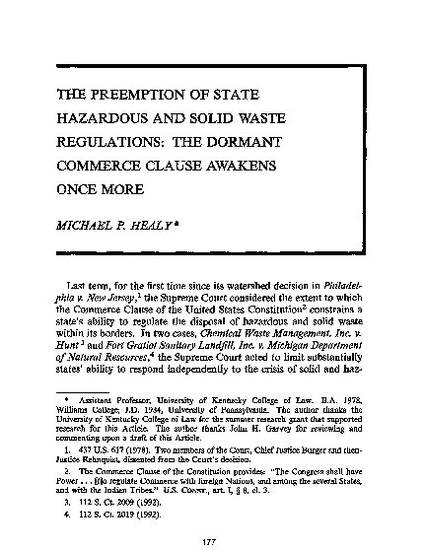
Last term, for the first time since its watershed decision in Philadelphia v. New Jersey, the Supreme Court considered the extent to which the Commerce Clause of the United States Constitution constrains a state's ability to regulate the disposal of hazardous and solid waste within its borders. In two cases, Chemical Waste Management, Inc. v. Hunt and Fort Gratiot Sanitary Landfill, Inc. v. Michigan Department of Natural Resources, the Supreme Court acted to limit substantially states’ ability to respond independently to the crisis of solid and hazardous waste disposal. The Article describes the harmful impact of the Court's application of dormant Commerce Clause doctrine in cases involving state waste regulation. The final part of the Article surveys the options available for states wishing to limit in-state disposal of out-of-state waste.

Washington University Journal of Urban and Contemporary Law, Vol. 43 (Spring 1993), pp. 177-220